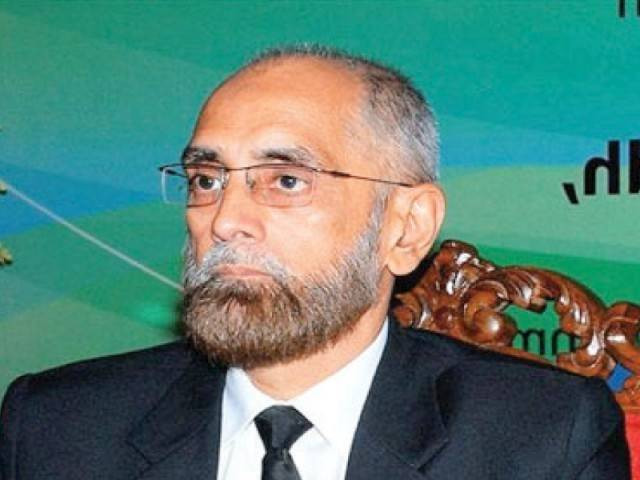Military takeovers left society in shambles, says CJP
Says people kept away from accepting democratic norms

Chief Justice of Pakistan (CJP) Justice Anwar Zaheer Jamali. PHOTO: FILE
Pakistan’s top judge has said repeated martial laws have not only hampered democracy in the country but have also kept its people away from accepting democratic norms.
“Martial laws have left Pakistani society in a shambles,” Chief Justice of Pakistan Anwar Zaheer Jamali said on Saturday while speaking at a ceremony organised in memory of renowned lawyer Abdul Hafeez Pirzada at Karachi’s Mohatta Palace Museum on Saturday.
Courts can shoot down anti-people laws: CJP
Pakistan has witnessed three decades of direct military rule since its independence in 1947. Military coups began in 1958 and since then there have been three successful military-led governments besides several unsuccessful coup attempts.
The CJP termed the repeated imposition of martial laws Pakistan’s ‘misfortune’. Paying rich tributes to Pirzada, who authored Pakistan’s existing Constitution of 1973, the CJP said Pirzada had a distinctive personality both as a lawyer and a politician with worldwide recognition.

He recalled it was the late lawyer whose contribution and services had helped the country come out of the 1971 disturbance.
After the death of Zulfikar Ali Bhutto, Pirzada quit politics in 1977. Jamali said Pirzada’s signature trait was his uprightness. He always voiced support for righteousness.
SJC starts acting on complaints against top judges
He added Pirzada had always put the national interest before his personal interests and always called for the superiority of the law in the country.
The CJP also recommended the government should confer the Pride of Performance Award on Pirzada for his remarkable services for the nation.
Haseeb Pirzada, son of the late Pirzada, recalled that ZA Bhutto had widely appreciated his father for his zeal and untiring efforts to finish the phenomenal historic task of writing the Constitution.
He also lauded his father for demonstrating his legal and political finesse in authoring the Constitution.
Haseeb thanked the Endowment Fund Trust for holding the ceremony to pay tribute to his late father. Supreme Court’s Justice Amir Hani Muslim called Pirzada one of the finest lawyers of the country and ‘father’ the 1973 Constitution.
Pirzada, he added, was greatly admired in the legal fraternity for his services to the nation.
Hamid Haroon called Pirzada a “man of culture”, who worked hard for the promotion of the country’s culture and setting up institutes for this purpose.
Sindh High Court Chief Justice Sajjad Ali Shah, judges of the superior judiciary and a number of dignitaries attended the ceremony.
Published in The Express Tribune, March 20th, 2016.



















COMMENTS
Comments are moderated and generally will be posted if they are on-topic and not abusive.
For more information, please see our Comments FAQ